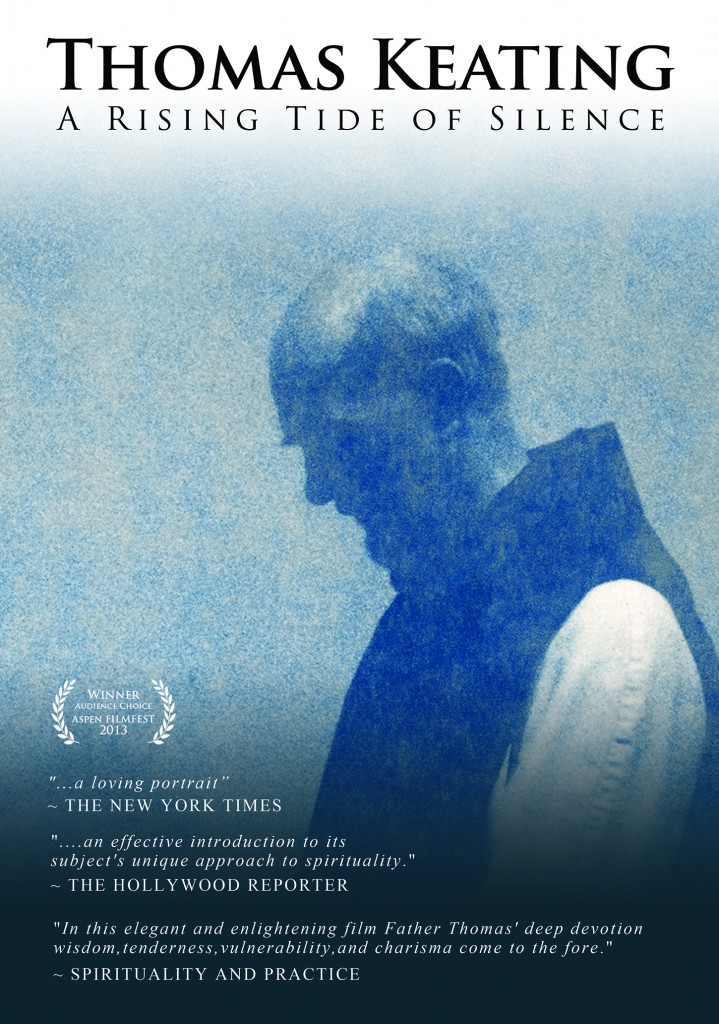![donmorrison[2]](http://thecenter.mit.edu/wp-content/uploads/2012/05/donmorrison21.jpg)
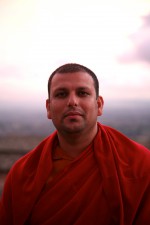
Venerable Tenzin’s unusual background encompasses entering a Buddhist monastery at the age of 10 years to receiving graduate education at Harvard withe degrees ranging from Philosophy to Physics to International Relations.
Venerable Tenzin serves on the Board of several academic, humanitarian, and religious organizations. He is a recipient of several recognitions and awards, most recent of which is a 2013 Distinguished Alumni Award from Harvard for his visionary contributions to humanity.
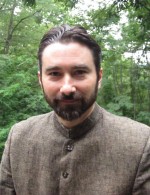
![tenzin2[1]](http://thecenter.mit.edu/wp-content/uploads/2012/05/tenzin21-150x150.jpg)
(Limited Enrollment. No refund will be processed after August 10, 2014)
You will receive a registration confirmation email upon payment. If you have not received a confirmation email, you are not registered. Participants are encouraged to bring their own laptop or iPad.
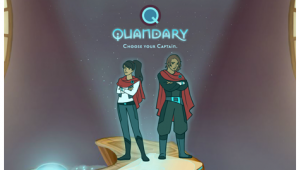
Instructors: Peter Stidwill & Lacey Hillard
QUANDARY: Leveraging game-based learning to develop ethical thinking and decision making skills
QUANDARY, an award-winning game from the Learning Games Network, is a game that encourages players to think ethically as they lead a human colony struggling for survival on fictional planet Braxos. The game’s goal is to provide an engaging experience for players aged 8-14 to strengthen foundational skills – including perspective-taking, decision making and critical thinking – that help them recognize ethical issues and deal with ethical situations in their own lives.
In this workshop, we’ll explore how to integrate QUANDARY into the classroom by playing the game, viewing and discussing teacher example videos and tips, and reviewing players’ feedback. We’ll also look at extension ideas and support material available on the web, including teacher and player created scenarios. We’ll pull-out the concepts and design under-pinning the game: why we chose the dilemmas that are featured; why it was set on a fictional planet; how the scoring works; how we encourage discussion and reflection; what ethical theories underpin the game.
Participants will:
• Play the game
• Watch video clips of the game in use and kids’ reactions
• Hear how the game was designed
• Discuss one of the ethical dilemmas presented in the game
• Discuss how the game can be used in the classroom, and hopefully suggest and share new thoughts and extensions
Participants will gain:
• Confidence in using Quandary in their classroom, including tips and strategies that can be applied to game-based learning more generally
• Knowledge about the types of dilemmas and support materials available to facilitate ethical discussions in the classroom
• An understanding of the ethical research and frameworks used for the game (plus an opportunity to debate these choices and game design)
• An insight into the design and use of learning games
This workshop is part of The Center’s Young Peace Leaders Program.
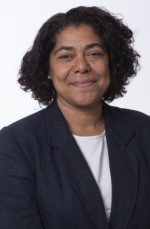
Since 2003, she has been on the faculty at the Yale School of Management, where she is the faculty director the Global Pre-MBA Leadership Program. Her courses include: Interpersonal Dynamics, Managing Teams and Groups, Leadership Development, Emotional Intelligence and Coaching Skills for Managers. In recent years, she spearheaded the original leadership development curriculum design and directed both the Leadership Development Program and the SOM Mentoring Program.
Dr. Brooks has a PhD in psychology from the University of California at Berkeley and a BA from Brown University. When she is not with her family or on the tennis court, Heidi is usually engaged in building courageous leadership communities.
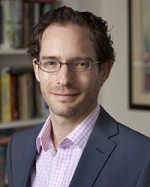

Venerable Tenzin’s unusual background encompasses entering a Buddhist monastery at the age of 10 years to receiving graduate education at Harvard withe degrees ranging from Philosophy to Physics to International Relations.
Venerable Tenzin serves on the Board of several academic, humanitarian, and religious organizations. He is a recipient of several recognitions and awards, most recent of which is a 2013 Distinguished Alumni Award from Harvard for his visionary contributions to humanity.
Educational researcher, writer, recovering entrepreneur, and chief learner at Degree of Freedom
Jonathan Haber is a writer/researcher (and recovering entrepreneur) who has worked in the fields of professional assessment, employment, curriculum development and educational technology. His Degree of Freedom project (degreeoffreedom.org) chronicled his attempt to learn everything you would get from being enrolled in a four-year, liberal arts degree program in just 12 months using only MOOC’s and other free educational resources. He is currently completing a book on MOOC’s for MIT Press.
Justin Reich
Richard L. Menschel HarvardX Research Fellow, Harvard University
Justin Reich is an educational researcher interested in the future of learning in a networked world. He is the Richard L. Menschel HarvardX Research Fellow, a Fellow at the Berkman Center for Internet and Society, and a lecturer in the MIT Scheller Teacher Education Program. He is also the co-founder and co-director of EdTechTeacher, which works with teachers, schools, and districts to leverage new technologies to improve student learning.
Sanjay Sarma
Director of Digital Learning at MIT
Sanjay Sarma is the Fred Fort Flowers and Daniel Fort Flowers professor of mechanical engineering and newly appointed Director of Digital Learning at MIT. Sarma was one of the founders of the Auto-ID Center at MIT, which, along with a number of partner companies and its “spin-off,” EPCglobal, developed the technical concepts and standards of modern RFID. He also chaired the Auto-ID Research Council consisting of six labs worldwide, which he helped to establish. Today, the suite of standards developed by the Auto-ID Center, commonly referred to as the EPC, are utilized by over a thousand companies on five continents. Between 2004 and 2006, Sarma took a leave of absence from MIT to found the software company OATSystems, which was acquired by Checkpoint Systems in 2008. He is a consultant and board member at several companies, including EPC Global, and also serves as a permanent guest of the board of GS1 and a member of the board of governors of GS1US. Sarma also serves on the City of Boston’s Complete Streets Advisory Group.
Scot Osterweil is the Creative Director of the Education Arcade and a research director in the MIT Comparative Media Studies/Writing Program. He is a designer of award-winning educational games, working in both academic and commercial environments, and his work has focused on what is authentically playful in challenging academic subjects. He has designed games for computers, handheld devices, and multi-player on-line environments. He is the creator of the acclaimed Zoombinisseries of math and logic games, and leads a number of projects in the Education Arcade, including the MIT/Smithsonian curated game, Vanished (environmental science), Labyrinth (math), Kids Survey Network (data and statistics), Caduceus(medical science), iCue (history and civics) and the Hewlett Foundation’s Open Language Learning Initiative (ESL). He is a founding member of the Learning Games Network
Colombia desea la paz, pero su conquista es un proceso que implica trabajo, aprendizaje y perseverancia. La reconstrucción de la confianza política y social, herida tras décadas de violencia, requiere de una sociedad valiente y dispuesta a otorgarse a sí misma el regalo del perdón.
Para asumir con libertad el compromiso de reparar los daños y edificar una sociedad fundada en el respeto y el cuidado mutuos, también hemos de preparar el terreno en nuestro interior, sembrando la semilla de la reconciliación con nuestro pasado y con nuestro país.
La paz es un proceso tanto político y público como personal, reservado e interior. Como no es posible conquistar una justicia política perfecta, hemos de trabajar internamente comprendiendo cada vez más la fragilidad de nuestra justicia humana, iluminándola y abrazándola con compasión. Pues sólo la compasión, la confianza y la firmeza pueden ayudarnos efectivamente a aprender del dolor, la culpa, la indignación y el resentimiento. Fortalecer la paz interior es también un factor determinante de la paz política. La conferencia es en inglés, con traducción simultánea al español.

A Program for Transformative Teachers: Cultivating Resilient and Ethical Young Leaders
Become a Transformative Teacher!
The Dalai Lama Center for Ethics and Transformative Values at the Massachusetts Institute of Technology is offering intensive one-day “Transformative Teachers” workshops for high school and middle school teachers; providing teachers with the tools and methods for fostering resilient and ethical young leaders. This program supports two ongoing initiatives to develop ethics and leadership among youth: Young Peace Leaders, targeting elementary and middle school aged children, and Compassionate Young Leaders for young adults in high school and university.
Program Goals
Through interactive workshops that engage teachers in discussion, introspection and experimentation, the Transformative Teachers program trains teachers to integrate the development of cognitive skills, social-emotional understanding, and ethical purpose; enabling teachers to make a profound and lasting impact on their students. The workshops intend to achieve the following goals.
- Explore the influence of core values and vision on teaching practice and on leadership development for students;
- Introduce and demonstrate activities for cultivating empathy, self-awareness, emotional understanding and clarity of values inside and outside the classroom;
- Establish a growing community of teachers committed to the development of resilient and ethical young leaders;
- Develop a plan for sustained activities at the participants’ respective schools.
Wrong. In an upcoming, complimentary webinar, The Good Jobs Strategy: Why Good Jobs Are Good for Businesses, MIT Sloan Professor Zeynep Ton examines how organizations can design and manage their operations in a way that everyone–employees, customers, and investors—wins. Referencing research from her popular book, The Good Jobs Strategy: How the Smartest Companies Invest in Employees to Lower Costs and Boost Profits, Ton makes the compelling case that even in low-cost settings, leaving employees behind with bad jobs is a choice, not a necessity.
Join Professor Ton on June 26 to learn why the race to the bottom in retail employment (and other industries) doesn’t have to be the only game being played.
Click here to register for the Live Webinar.
The course will provide a hands-on introduction to sustainable development issues, off-grid energy technologies, and community-based business models, culminating in group projects that focus on expanding energy access for the local community. Half of the students will come from India, and half will start the course in the UAE and then travel to Leh. The cross-cultural exchange and opportunity for creating entrepreneurial teams with access to technical know-how, capital, and local knowledge will be a key outcome of the course. Trainers for the course will include experts from MIT and the Masdar Institute, as well as energy access practitioners with experience in starting small energy enterprises.
Register now to learn what the future holds for these cities, what complex problems and exciting solutions exist and what they mean to you and the work you do, and how you can help overcome them to build sustainable coastal cities.
Featured speakers
 |  |  |  |
| JOHN FERNANDEZ Professor MIT Department of Architecture | NANCY KETE Managing Director Rockefeller Foundation | AISA TOBING Senior Advisor to the Governor City of Jakarta | BRIAN SWETT Chief of Environment and Energy City of Boston |
 |  |  |  |
| BRIAN HARRINGTON Chief Marketing Officer Zipcar, Inc. | THOMAS ABDALLAH Chief Environmental Engineer MTA New York City Transit | SHAWN ROSENMOSS Senior Environmental Specialist San Francisco Department of the Environment | HELEN LOCHHEAD Executive Director Sydney Harbour Foreshore Authority |
 |  |  |  |
| RICHARD KELLY Chief Catalyst Officer Li & Fung, Ltd., Hong Kong | MOLLY TURNER Director of Public Policy Airbnb, Inc. | TERRY BENNETT Senior Industry Program Manager Autodesk, Inc. | RYAN CHIN Research Scientist MIT Media Lab, Changing Places Group |
 World-renowned composer Tod Machover and architect/designer Neri Oxman, both from the MIT Media Lab, in collaboration with Buddhist monk Tenzin Prriyadarshi, Director of the Dalai Lama Center for Ethics and Transformative Values du MIT, invite the public into fascinating and intimate vocal experiences, to explore the relationship between human physiology-chemical phenomena in both body and sound vibrations, via unique design elements.
World-renowned composer Tod Machover and architect/designer Neri Oxman, both from the MIT Media Lab, in collaboration with Buddhist monk Tenzin Prriyadarshi, Director of the Dalai Lama Center for Ethics and Transformative Values du MIT, invite the public into fascinating and intimate vocal experiences, to explore the relationship between human physiology-chemical phenomena in both body and sound vibrations, via unique design elements.From 28 March to 29 September 2014, Vocal Vibrations, an original installation and design, invites the public to discover the relationship between sound vibrations stimulated by voice and their effects on human physiology, with sensory, unique and exceptional experience. This experience has been realized in collaboration with The Venerable Tenzin Priyadarshi, Buddhist monk, director of the Dalai Lama Center for Ethics and Transformative Values at MIT, the bold-design studio, Professor Craig Carter of MIT, Situ Fabrication, Stratasys, and a team composed of researchers from MIT Elly Jessop, Rebecca Kleinberger, Charles Holbrow and Al Grodzinsky.
 Partners:
Partners: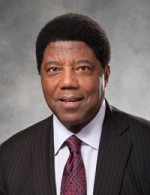
RSVP requested. You may RSVP for the entire conference or separate portions.
The conference topic was proposed by the winners of WPF’s annual student seminar competition. It is organized by the World Peace Foundation, in association with the Eliot-Pearson Department of Child Development at Tufts University and the FXB Center for Health and Human Rights at Harvard University.
AGENDA
Thursday, February 13
5:00 — 5:10 p.m. Welcome Remarks
5:10 — 6:45 p.m. Can we become a more peaceful species?
- Steven Pinker, Department of Psychology, Harvard University
- Daniel Dennett, Center for Cognitive Studies, Tufts University
- Moderator: Alex de Waal, World Peace Foundation at The Fletcher School, Tufts University
Friday, February 14
9:00 — 9:15 a.m. Welcome Remarks: Alex de Waal
9:15 — 10:30 a.m. Undoing the impacts of violence?: Perspectives from neuroscience and education
- Regina Sullivan, Emotional Brain Institute, Nathan Kline Institute for Psychiatric Research Child and Adolescent Psychiatry, New York University
- John Lawrence Aber, Steinhardt School of Culture, Education, and Human Development, New York University
- Maryanne Wolf, Eliot-Pearson Department of Child Development, Tufts University
- Moderator: Sarah Dryden Peterson, Harvard Graduate School of Education
10:45 — 12:30 p.m. Violence and abuse against children
- Theresa Betancourt, François-Xavier Bagnoud Center for Health and Human Rights, Harvard University
- Michael Wessells, Mailman School of Public Health, Columbia University
- Moderator: Dyan Mazurana, The Fletcher School, Tufts University
12:30 — 2:00 p.m. Lunch Break
2:00 — 3:15 p.m. Translating evidence into policy
- Jennifer Batton, Global Partnership for the Prevention of Armed Conflict
- Jennifer Batton, Global Partnership for the Prevention of Armed Conflict
- Yasemin Sırali Altuğ, ACEV – Mother Child Education Foundation
- Rima Salah, Early Childhood Peace Consortium, Yale University
- Moderator: Jacqueline Bhabha, François-Xavier Bagnoud Center for Health and Human Rights, Harvard University
3:30 — 4:30 p.m Ethical education
- Venerable Tenzin Priyadarshi Rinpoche, Dalai Lama Center for Ethics and Transformative Values, MIT
- Introduction and Moderator: Maryanne Wolf, Eliot-Pearson Department of Child Development, Tufts University
PARTICIPANT BIOS
PANEL 1
Steven Pinker is a Johnstone Family Professor in the Department of Psychology at Harvard University. He is the author of eight books, including The Language Instinct, How the Mind Works, Words and Rules, The Blank Slate,The Stuff of Thought, and, most recently, The Better Angles of Our Nature: Why Violence Has Declined. His research on visual cognition and the psychology of language has won prizes from the National Academy of Sciences, the Royal Institute of Great Britain, the Cognitive Neuroscience Society, and the American Psychological Association. He has been named Humanist of the year, Prospect magazine’s “The World’s Top 100 Public Intellectuals,” Foreign Policy’s “100 Global Thinkers,” and Time magazine’s “The 100 Most Influential People in the World Today.”
Daniel C. Dennett is University Professor and Austin B. Fletcher Professor of Philosophy, and Co-Director of the Center for Cognitive Studies at Tufts University. He has authored seventeen books, including Breaking the Spell, Freedom Evolves and Darwin’s Dangerous Idea. He received his B.A. in Philosophy from Harvard in 1963, and completed his D.Phil. under the supervision of Gilbert Ryle at Oxford in 1965. Professor Dennett has received two Guggenheim Fellowships, a Fulbright Fellowship, and a Fellowship at the Center for Advanced Studies in Behavioral Science. He was elected to the American Academy of Arts and Sciences in 1987.
Alex de Waal is Executive Director of the World Peace Foundation. Before joining the Foundation, De Waal worked as Senior Advisor to the African Union High Level Panel on Sudan. He also worked at the Social Science Research Council, where he directed a program on HIV/AIDS and Social Transformation and on a group of projects on Conflict And Humanitarian Crisis in the Southern Cone of Africa. De Waal received his doctorate in social anthropology from Oxford University in 1988.
PANEL 2
Regina Sullivan, PhD. is a Developmental Behavioral Neuroscientist at New York University’s Lagone Medical Center. Her research focuses on the neurobiology of infant attachment to the caregiver to determine the neural mechanisms for the enduring mental health effects of abuse and trauma in early life. She has authored over 100 journal articles, book chapters, and other professional publications, including work in Nature and Nature Neuroscience. Dr. Sullivan has served as a consultant and advisor to the National Institute of Health, and has served as President for The International Society for Developmental Psychobiology and The Society for Neuroscience OK Chapter. Additionally, she serves on boards for scientific several journals, including Developmental Cognitive Neuroscience Journal, International Journal for Developmental Psychobiology and Frontiers in Behavioral Neuroscience. Dr. Sullivan received her doctoral training was with The City University of New York and post-doctoral training at Duke University and The University of California.
John Lawrence Aber is Willner Family Professor in Psychology and Public Policy at the Steinhardt School of Culture, Education, and Human Development, and University Professor, New York University, where he also serves as board chair of its Institute of Human Development and Social Change. From 2003-2006, Dr. Aber chaired the Advisory Board, International Research Network on Children and Armed Conflict of the Social Science Research Council, in collaboration with the Special Representative to the Secretary General of the United Nations on Children and Armed Conflict and UNICEF. In 2006, he was appointed by the Mayor of New York City to the Commission for Economic Opportunity, an initiative to help reduce poverty and increase economic opportunity in New York City. He is also Chair of the Board of Directors of the Children’s Institute, University of Cape Town, South Africa; and served as consultant to the World Bank on its project, “Children and Youth in Crisis.” Dr. Aber earned his Ph.D. from Yale University and an A.B. from Harvard University.
Maryanne Wolf is the John DiBaggio Professor of Citizenship and Public Service and the Director of the Center for Reading and Language Research at Tufts University. She is the author of the RAVE-O Intervention Program, an evidence-based fluency comprehension program for struggling readers that has proven successful in two major federal studies. She received the Norman Geschwind Lecture Award from the International Dyslexia Association for neuroscience research in dyslexia, the Distinguished Professor of the Year Award from the Massachusetts Psychological Association, and the Teaching Excellence Award from the American Psychological Association. Professor Wolf received her doctorate from Harvard University in the Department of Human Development and Psychology in the Graduate School of Education.
PANEL 3
Theresa Betancourt is an Associate Professor of Child Health and Human Rights and Director of the Research Program on Children and Global Adversity at the Harvard School of Public Health, and an adjunct faculty member of the Boston University School of Public Health/Center for International Health and Development and an Associate Scientist in the Department of Child and Adolescent Psychiatry at Children’s Hospital, Boston. Dr. Betancourt is the Principal Investigator of an ongoing longitudinal study of former child soldiers in Sierra Leone and is currently collaborating with Partners in Health Rwanda to launch a mixed-methods study of mental health needs among HIV/AIDS-affected youth. She graduated summa cum laude in psychology from Linfield College in McMinnville, Oregon and holds a Master in Art Therapy from the University of Louisville. She completed her doctoral work in Maternal and Child Health with concentrations in Psychiatric Epidemiology and Health and Human Rights at the Harvard School of Public Health.
Michael Wessells PhD is Professor at Columbia University in the Program on Forced Migration and Health. A long time psychosocial and child protection practitioner, he is former Co-Chair of the IASC Task Force on Mental Health and Psychosocial Support in Emergency Settings. Recently, he was co-focal point on mental health and psychosocial support for the revision of the Sphere humanitarian standards. He has conducted extensive research on the holistic impacts of war and political violence on children, and he is author of Child soldiers: From violence to protection. Currently, he is lead researcher on inter-agency, multi-country action research on strengthening community-based child protection mechanisms by enabling effective linkages with national child protection systems. He regularly advises UN agencies, governments, and donors on issues of child protection and psychosocial support, including in communities and schools. Throughout Africa and Asia he helps to develop community-based, culturally grounded programs that assist people affected by armed conflict and natural disasters.
Dyan Mazurana, Ph.D., is a Research Director at the Feinstein International Center and an Associate Research Professor at the Fletcher School at Tufts University. Mazurana has published over 70 scholarly and policy books and articles. Her latest book is A View from Below: Conducting Research in Conflict Zones, edited with Karen Jacobsen, and Lacey Gale (Cambridge University Press, 2013). Other recent books include Life and Security in Rural Afghanistan (Rowman & Littlefield, 2008) with Nematollah Nojumi and Elizabeth Stites; and Gender, Conflict, and Peacekeeping (Rowman & Littlefield, 2005) with Angela Raven-Roberts and Jane Parpart. Mazurana has carried out research in Afghanistan, the Balkans, several countries in sub-Saharan Africa, and Nepal. She received her M.A. and Ph.D. in Women’s Studies from Clark University.
PANEL 4
Jennifer Batton, a consultant for UNESCO – IIEP, also serves as the Co-chair of the Global Partnership for the Prevention of Armed Conflict, Peace and Conflict Resolution Education (CRE) Working Group; Senior Fellow for the International Institute for Sustained Dialogue, and Conference Coordinator for the annual International Conference on Conflict Resolution. She is the former director of education programs for the state government office, the Ohio Commission on Dispute Resolution and Conflict Management in Columbus, Ohio, USA. Batton worked on CRE in Afghanistan, Australia, Belize, Colombia, Costa Rica, Cyprus, Guatemala, Kyrgyzstan, Netherlands, Northern Ireland, St. Lucia, St. Vincent, Serbia, Spain, Trinidad and Tobago, and Ukraine. She has a B.A. in Political Science from Miami University, and an M.A. in Conflict Resolution from Antioch University. She has completed additional coursework towards a Ph.D. in Conflict Management through Nova Southeastern University.
Yasemin Sırali Altuğ is the International Programs Advisor at ACEV (Mother Child Education Foundation) and Director of Social Investment Projects at FIBA Group in Turkey. Prior to joining FIBA Group and ACEV in 2010, Mrs. Sırali Altuğ worked as a management consultant at the New York City and Philadelphia offices of Deloitte Consulting where she provided consulting and advisory services to multinational companies on strategic and operational business issues. She graduated from Swarthmore College in 2001 with an Honors degree in Economics and French Literature and obtained her MBA at the Harvard Business School in 2006. She is a Young Global Leader of the BMW Foundation and a founding member of the First Lego League Science Heroes Association in Turkey.
Rima Salah is currently Assistant Clinical Professor at the Yale University Child Study Center, associated with the Early Childhood Peace Consortium. Dr. Salah has previously served as the Deputy Executive Director for External Relations with UNICEF. Her distinguished career with UNICEF began in 1987 as Project Officer for Social Mobilisation in Quetta, Pakistan. In 1989, she was promoted to the position of Resident Project Officer, and in 1992, Dr. Salah began a four year assignment as UNICEF Representative in Burkina Faso. She was then appointed as UNICEF Representative in Vietnam in 1995. In 1999, she was promoted to Regional Director for West and Central Africa Office. She also served as Deputy Special Representative of the Secretary-General, United Nations Mission in the Central African Republic and Chad (MINURCAT).
Jacqueline Bhabha is FXB Director of Research, Professor of the Practice of Health and Human Rights at the Harvard School of Public Health, the Jeremiah Smith Jr. Lecturer in Law at Harvard Law School, and an Adjunct Lecturer in Public Policy at the Harvard Kennedy School. From 1997 to 2001 Bhabha directed the Human Rights Program at the University of Chicago. Prior to 1997, she was a practicing human rights lawyer in London and at the European Court of Human Rights in Strasbourg. She is the editor of Children Without A State, author of Moving Children: Young Migrants and the Challenge of Rights, and the editor of Coming of Age: Reframing the Approach to Adolescent Rights. Bhabha serves on the board of the Scholars at Risk Network, the World Peace Foundation and the Journal of Refugee Studies. She received a first class honors degree and a M.Sc. from Oxford University, and a J.D. from the College of Law in London.
KEYNOTE
The Venerable Tenzin Priyadarshi Rinpoche is the Founder and Director of the Dalai Lama Center for Ethics and Transformative Values at the Massachusetts Institute of Technology (MIT), a non-partisan collaborative think tank focused on interdisciplinary research and programs related to the development of human and global ethics. He also serves as the Buddhist Chaplain to the Institute. He studied traditional Indo-Tibetan and Japanese Buddhism and was ordained by His Holiness The Dalai Lama who is his spiritual mentor. He completed his graduate studies in Comparative Philosophy of Religion at Harvard University in 2003.
Venerable Tenzin Priyadarshi is also the Founding Director and President of the Prajnopaya Institute and Foundation and a founding member of the Vishwa Shanti Stupa (World Peace Pagoda) in New Delhi, India, and also serves on the Board of several academic, humanitarian, and religious organizations. He lectures internationally on subjects ranging from philosophy, science, ethics and religion to socio-political thought. He also teaches traditional Buddhist philosophy and practice through the Prajnopaya Institute.
With help from: Rosalind Picard and Kevin Slavin
Teaching assistant: Karthik Dinakar
Offered through MIT Media Lab
Summary:
This course will focus of tools and technologies that support physical, mental or social well-being. A first goal of the course is survey the current understanding in the areas of mental and emotional well-being, social well-being and physical well-being (nutrition, exercise and sleep). A second goal is to take a look at technologies which could help promote well-being including quantified self technologies, games for health, on-body and ingestible sensors, wearable technologies and augmented human technologies. Last but not least, a goal of the course is for students to design and implement original projects in the area of technologies for well-being (in small groups). The majority of class meetings will consist of talks by invited speakers from a wide variety of backgrounds.
Requirements:
Students will be asked to comment on the talks and readings. Students will be asked to study some area of research and present a critical overview in class. Finally, students will be expected to design and implement a major project in a small group.
Lecture: Th 3pm-5pm
CRLR Conference Room- Miller Hall (North Wing-Tufts)
Lab: Wed 10-noon, E14-493 (MIT)
Instructor: Prof. Maryanne Wolf
with Stephanie Gottwald and Tinsley Galyean
We are pioneering a project-based seminar in which students will design, develop, and pilot digital media to support reading acquisition for young, at-risk children around the world (e.g., Africa, India, and the US). Students will be expected to learn theoretical aspects of language and reading development alongside basic app design principles that will be sufficient for them to help develop the specs for one app that has the potential to be developed further and ultimately taken into the field. The issues around apps proving positive opportunities for character development and ethical learning will be an important dimension of the course, and students will be asked to include such learning into their app designs as a secondary learning objective.


